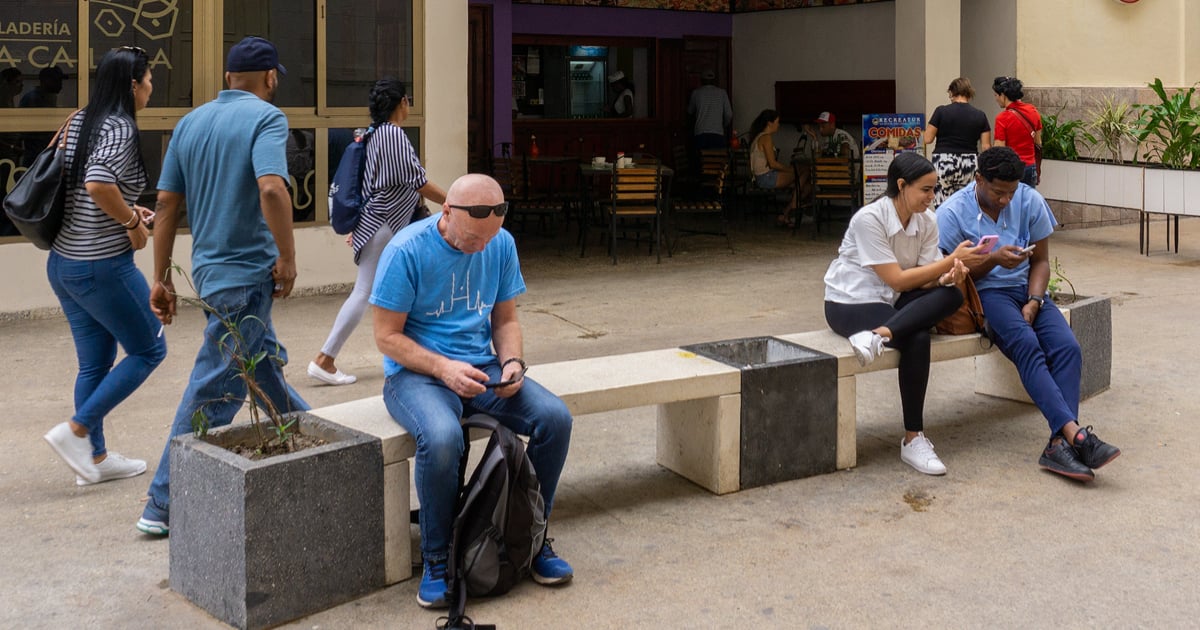In response to ETECSA's recent move to dollarize its primary mobile Internet services and severely restrict access in the national currency, some principled Cubans have chosen to reject any external top-ups. This decision by ETECSA, which many view as a socially exclusive act and a form of economic blackmail, has faced harsh criticism both from those residing on the island and the Cuban diaspora.
"I refuse to allow a single cent to be added in my name to ETECSA. I don't want top-ups. I'd rather ETECSA go bankrupt than use a phone again," stated Manuel Viera, a lawyer, on Facebook. Viera labeled ETECSA as an "anti-people" company within an "anti-people" economy, tailored solely for those with access to dollars, while the average Cuban endures blackouts, shortages, and poverty.
"We need a Cuba designed for the locals, who suffer and are tired of working," he asserted.
Art critic Jorge de Mello announced his forced withdrawal from social media, unable to afford the new prices imposed by the Cuban telecommunications monopoly. "I refuse to ask my emigrant friends to pay a single dollar to an inefficient state company engaging in digital racketeering under the guise of a lack of freedoms," he wrote on Facebook. For De Mello, the alarming issue is not just the exorbitant cost of service, but the "general blackout of justice and morality" imposed on Cuban society.
Exiled Voices: Economic Hostages No More
The outrage has also resonated among Cubans abroad. Saily González Velázquez, an activist, proposed a "complete halt" to top-ups to the island as a form of protest: "They extort us with food combos, hotels for leisure, and now mobile data for communication. Enough is enough." González clarified that this is not about cutting humanitarian or familial aid but rather directly pressuring the regime through its Achilles' heel: the fresh dollars from top-ups.
"Today it's the top-ups, but tomorrow they'll charge for water in dollars. (...) If we don't act now, we'll also be complicit in this digital apartheid, this gag order, and the extreme inequality in Cuba," she emphasized.
An Orchestrated Scam by the Powers That Be
ETCSA's new policy caps national top-ups at 360 CUP monthly—barely enough for a basic 6 GB package—while offering "extra" packages only in dollars: 4 GB for $10, 8 GB for $20, and up to 16 GB for $35. The official justification cites "maintaining and developing the network," but Cubans criticize the company's poor management and accuse it of collecting millions in international top-up revenue over the years without investing in infrastructure.
"They raked in millions from overseas top-ups and invested nothing. No improvements in cellular or landline services, nothing," a resident from Pinar del Río commented on social media.
Internet Access: A Privilege for the Few
In Cuba, Internet access has become a luxury reserved for those receiving remittances or able to pay with international cards. New prices in CUP—such as 3 GB for 3,360 CUP or 15 GB for 11,760 CUP—are up to four times the monthly minimum wage on the island, rendering the service unattainable for most.
Beyond the economic impact, many decry the repressive nature of this measure. Restricting Internet access also restricts the right to information, digital work, education, and expression. "They think the 'Miami mafia' will rush to recharge lines in Cuba just because they say so. They'll see they're making a huge mistake again," said a self-employed individual.
While the government insists these actions are to maintain an expensive technological network, the reality is that connectivity is being de facto privatized by an elite with access to foreign currency. Digital access has become another battleground in Cuba's economic apartheid.
"All they're doing is widening the gap in Cuban society. The new wealthy are those with family abroad or the few who have access to USD," a woman from Havana remarked.
The unrest is growing, alongside the feeling that not only is Internet access being sold, but also the dignity of a people with increasingly little to lose.
Understanding ETECSA's Dollarization Impact
Why are Cubans rejecting external top-ups to ETECSA?
Cubans are rejecting external top-ups as a protest against ETECSA's dollarization of services, which many view as socially exclusive and economically coercive.
What is the criticism against ETECSA's new pricing policy?
Critics argue that ETECSA's pricing policy limits Internet access to those with dollar access, widening social inequality and failing to reinvest in infrastructure despite past revenues.
How does ETECSA's policy impact everyday Cubans?
The policy makes Internet access a luxury, unaffordable for many as costs can reach up to four times the monthly minimum wage, thus restricting access to information and communication.
What actions are being proposed by activists in response?
Activists are calling for a halt to top-ups as a means to pressure the Cuban regime by cutting off the dollar influx from these transactions.
